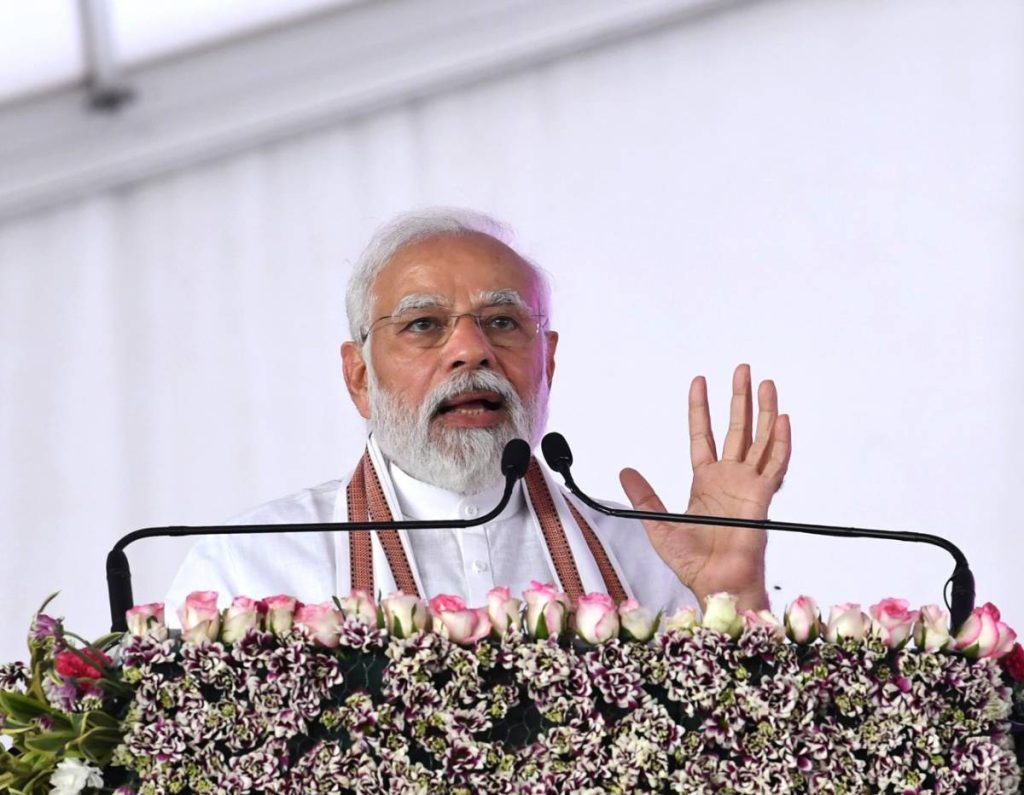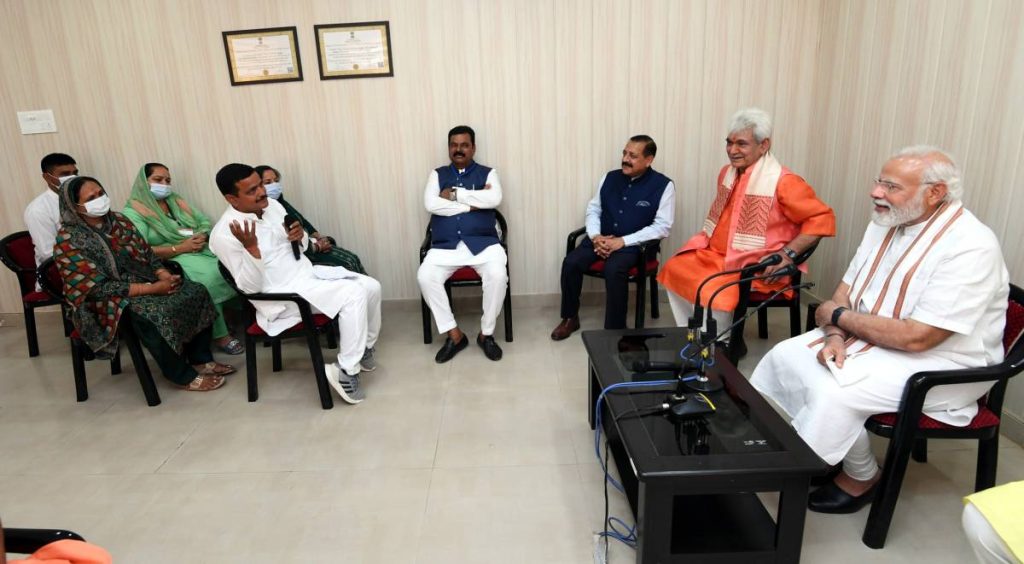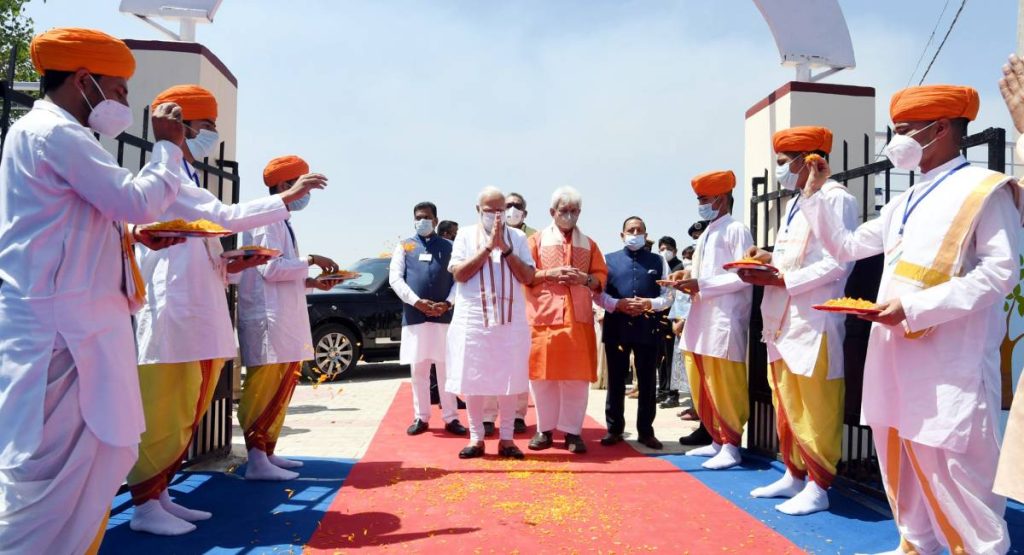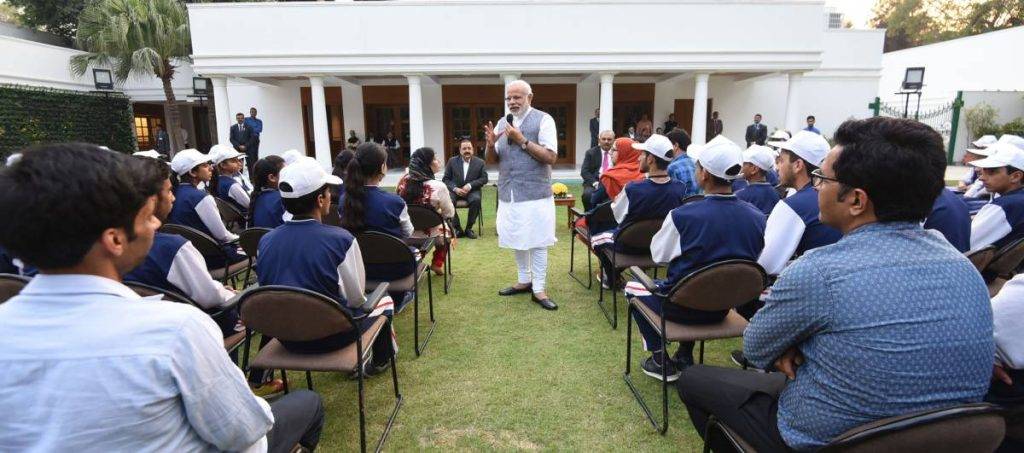Significantly the change in the Indian Prime Minister’s tone and tenor vis-a-vis Pakistan and insurgency has been noticed after the change of government in Pakistan early this month. The new Pakistani Prime Minister Shehbaz Sharif’s positive response to Modi’s greetings provided an indication of Islamabad’s interest or compulsion of reconciliation with New Delhi, writes Ahmed Ali Fayyaz
On January 8, 2013, commandos of Pakistan’s Border Action Team sneaked into Indian territory in Jammu, ambushed and killed two Indian army soldiers. Their bodies were found mutilated, one decapitated.
The opposition Bharatiya Janata Party raised passions over the series of such merciless killings reported from the Line of Control during the UPA rule. While visiting the soldier Hemraj’s family in Shernagar UP, senior BJP leader and Leader of the Opposition in Lok Sabha, Sushma Swaraj, said: “The incident that has happened, we should take revenge… If we don’t get this (Hemraj’s) head, we should get ten of theirs (Pakistani Army’s).
Apart from the routine exchange of shelling, India is known to have retaliated with surgical strikes twice: first after the killing of 19 soldiers in a fidayeen (suicide) attack by Jaish-e-Mohammad on a military installation at Uri in September 2016 followed by an Indian Air Force strike on a terrorist training centre at Balakot in February 2019. The Indian action came in retaliation to the killing of 40 CRPF personnel in Pulwama.
Previously on February 10, 2018, six soldiers and a civilian, along with the three suicide attackers, had died in an attack on an army camp at Sunjuwan, Jammu.
Notwithstanding the restoration of the year 2003 ceasefire on February 25, 2021, the ripple effects of the Pulwama fidayeen attack continue to persist.
While the militants’ capacity to attack the Police and security forces’ camps has been drastically emaciated after February 2019, they continued low intensity grenade attacks besides fatal strikes on soft targets. Over a dozen people were shot dead ahead of the Home Minister Amit Shah’s visit in October 2021.

A fresh spree of armed attacks on Panches, Sarpanches, members of the minority community in Kashmir and non-local workers has started since March 19, 2022. In a dramatic development on Friday, two days ahead of the Prime Minister’s scheduled visit, the Police in Jammu claimed to have killed two Pashto-speaking terrorists in suicide gear at Sunjuwan. They had reportedly infiltrated through the International Border in Samba, a few miles from the PM’s venue of the public rally.
But in sharp contrast to the BJP leaders’ trademark diatribe, and contrary to the common expectations, Modi’s 45-minute speech at Samba on Sunday had no reference to Pakistan or that country’s hostilities in Jammu and Kashmir in the last 32 years.
“I assure Kashmir’s younger generation that they would not suffer the hardships their parents and grandparents did. This is my commitment. We will make it possible at whatever the cost,” Modi asserted without any tangential attacks on the Pakistan-sponsored insurgency.
In his address at the Panchayati Raj Diwas, Modi didn’t mention even the four Panches and Sarpanches killed in Kashmir in the last 8 weeks. He didn’t make even a cursory reference to the Sunjuwan encounter which, according to senior Police officials, signalled the indication of a plan to sabotage PM’s visit.
A large number of the members of Panchayati Raj Institutions (PRIs), drawn from Kashmir and Jammu, as also the BJP supporters and common people participated in the rally. It was Modi’s first civilian visit to Jammu and Kashmir after taking over as Prime Minister for his second term on 30 May 2019.
It was also the PM’s first civilian visit after creation of the Union Territory in 2019. Modi visited J&K’s Rajouri district on October 27, 2019 and November 4, 2021 – both occassions to only celebrate Diwali with the troops.

Contrary to his post-2019 speeches, Modi remained concentrated on development which also dominates his public addresses in UP, Uttarakhand and Himachal Pradesh. Also avoiding typical attacks on National Conference and Peoples Democratic Party, characteristic of the BJP leaders since 2018, Modi didn’t speak about corruption or ‘dynastic politics’. He was content with just a cursory reference to the gains accruing out of the abrogation of Article 370.
Modi may be simply testing the intentions of the new leadership in Pakistan but there is a context to the dimmed areas of his statement.
Significantly the change in the Indian Prime Minister’s tone and tenor vis-a-vis Pakistan and insurgency has been noticed after the change of government in Pakistan early this month. The new Pakistani Prime Minister Shehbaz Sharif’s positive response to Modi’s greetings provided an indication of Islamabad’s interest or compulsion of reconciliation with New Delhi. Delhi did not take exception to a routine filler of the ‘resolution of the Kashmir issue’ in Sharif’s letter.
In his first speech at the National Assembly, PM Sharif said that Pakistan had been dismembered economically and it was in its history’s worst condition.
He said that the total volume of the world debt on Pakistan was Rs 25,000 billion from 1947 to 2018 but Imran Khan’s regime had added to it Rs 20,000 billion in just three years.
The industrialist-politician, who has served as Chief Minister of the Punjab province three times, Sharif is supposed to realise that Pakistan’s real existential threat was the International Monetary Fund (IMF) debt, rather than India’s military might.
Sharif is expected to realise that his country’s increasing economic dependence on China would be a big compromise on sovereignty not affordable for Pakistan. His advantage is a harmonious wavelength with the Army on economic policy.
The Army is known to be the only functional and dependable institution in Pakistan that has not only maintained equilibrium with China but also saved Islamabad’s nose-diving relationship with the US during Imran Khan’s rule. It alone can take Pakistan out of the FATF’s grey list. Diplomatic circles in Delhi insist that the recent conviction of the Lashkar-e-Tayyiba founder Hafiz Saeed would not be possible without a green signal from the Army.
India is understood to have communicated its security concern and implications thereof to the Pakistani Army in view the unabated infiltration, smuggling of arms and drugs and recruitment of fresh guerrilla cadres in Kashmir.

Reports from Pakistan suggest that in hours of the Sunjuwan encounter on Friday, the Army swooped on the headquarters of Masood Azhar’s Jaish-e-Mohammad and seized a quantity of arms and ammunition from the Centre.
Unlike Imran Khan, who claimed to be turning Pakistan into an Islamic caliphate (Riyasat-e-Madina), Sharif’s family is known for its camaraderie with India. In June 2014, PM Modi and PM Nawaz Sharif exchanged gifts of shawl and sari for each other’s mothers. However the military leadership of that period did not take it well and ultimately ensured the Sharif family’s ouster from power.
One day ahead of PM’s Jammu visit, Union Defence Minister Rajnath Singh gave the first signal of the BJP government’s change of heart on AFSPA in J&K.
“Some people believe that the Indian Army does not want AFSPA to be removed. I want to say from this forum today that the Indian Army has a minimum role in the matter of internal security. Army only wants that soon the situation in Jammu and Kashmir should be completely normal and AFSPA can be removed from there too,” Singh said while felicitating the 1971 War veterans and their family members in Guwahati, Assam.
In the changing ground realities, in which the August 2019 Indian interventions in Kashmir are moulding into fait accompli, Modi’s muteness on Pakistan and terror could be a harbinger of detente and peace.
(The content is being carried under an arrangement with indianarrative.com)

Leave a Reply